Message from the Founders
Tēnā koutou katoa.
We count ourselves blessed to see first-hand the incredible mahi being done in our communities, guided by inspiring leaders from across Aotearoa/New Zealand. Staying connected to our communities is vital, and during our visits to some of the organisations we support, we often find further ways to help them grow in order to make a greater difference.
The focus of The Tindall Foundation (TTF) is to support programmes and initiatives that will influence positive change for our people and planet. At TTF’s retreat earlier this year, we refreshed our strategy and identified five themes that are vital to the way we work. These are:
- Intergenerational Change — making a positive difference for future generations by finding ways to break the cycles that can hold people back;
- Equity — reducing inequality and building a sense of identity, belonging and connection;
- Long-term — backing initiatives that will go the distance (we know real change takes time!);
- Joined-up — helping organisations connect and collaborate with others to amplify their mahi; and
- Grassroots to Systems Change — supporting grassroots initiatives, as well as looking further afield to help organisations influence systems change.
Building and maintaining high-trust relationships is core to our values, and we continue to work closely with Māori communities to form strong partnerships based on mutual trust and respect. We are guided in this aspect of our work by Te Ao Māori views and knowledge, and recognise the roles and practices of Māori in Aotearoa. We are still early in our learning journey and will continue to listen to the organisations we support to keep improving the way we help.
By keeping our connections strong, and practising kindness and generosity, the journey will be a smoother one for everybody. We’d like to thank our incredible team, our fellow Trustees and each and every one of the organisations we fund for their dedication to serving our communities.
Ngā mihi,

Stephen and Margaret Tindall
Founders — The Tindall Foundation


Message from the Manager
Kia ora koutou and welcome to our Annual Report 2021/22.
At our recent TTF Trustee and staff retreat, our team discussed at length the importance of intergenerational wellbeing and improving equity to help create a stronger and more equitable Aotearoa. We also had great kōrero about the importance of a Te Ao Māori world view, which acknowledges the interconnectedness and interrelationship of all living and non-living things. We strongly support initiatives being undertaken with this holistic approach. Increasingly, we view the work we support through this lens, and much of our giving centres around those values.
TTF supports over 600 organisations each year. We intentionally spread our funding across groups that are working at a grassroots level, and also those that have the ability to effect systems change, with a view to ultimately reducing the need at that grassroots level.
Ara Taiohi is one such organisation that is active at both ends of this scale. A youth development organisation with more than 1800 members, Ara Taiohi works directly with rangatahi, and is also the peak body in Aotearoa for youth development. Its role is to connect the youth sector, raise standards, champion youth development and promote sustainability. You can read about their incredible mahi below.
Having a voice and creating the ability to be heard is integral to enacting change. E-Tangata, the influential online magazine dedicated to Māori and Pasifika stories, is doing just that — giving over 200 Māori and Pacific storytellers the chance to be heard. Manukau Urban Māori Authority, working with key partners including TTF, is another example of a grassroots initiative leading to systemic change. Its innovative pilot of a new hybrid-vehicle leasing scheme gives whānau affordable access to sustainable electric vehicles. If it becomes scalable to more families, it will help address social inequity by reducing transport costs and indebtedness to high-interest loans, as well as having benefits for our climate.
Deciding what and what not to fund can be difficult for a family philanthropic organisation. Our Local Donation Managers play a key role for our Trustees in that regard, helping carry out their wishes to serve our communities. As they are mostly located in communities, they are ideally placed to deliver TTF’s pass-through funding to where it will have the most benefit. We celebrate their mahi, and their increasing focus on building connections to iwi/Māori organisations and initiatives, in this report.
An ever-increasing aspect of TTF’s work is social inclusion. That is reflected in our deepening engagement with Embrace — the fund that supports trans, takatāpui and intersex people, whānau and communities to feel included, valued, visible, safe, respected and celebrated. We are grateful for the opportunity to work alongside other funders and communities in this area to support a range of initiatives that are achieving change at many levels.
This year we’ve donated over $10 million to support a stronger and more equitable Aotearoa. Over the past 27 years, we are proud to have donated over $206 million, in line with our strategic giving areas. It is humbling to have contributed something to the enormous work that local organisations have done over that time to support and strengthen their communities, now and for future generations.
Thank you for allowing us to work alongside you in support of that shared objective.
Ngā mihi nui,
John
John McCarthy
Manager — The Tindall Foundation
Flipping the script
with Ara Taiohi
“I am guided by my loved ones above, protected by my brothers, backed by my parents, grounded by my irāmutu, driven by my community and rangatahi, fulfilled by my friends and nurtured by my pou tokomanawa, my nan.”
– Kaz Hepi
At 27, Kaz is one of 1800 members of Ara Taiohi, the youth development organisation helping young people in Aotearoa/New Zealand to thrive.
Connecting Communities
at Grassroots

TTF Local Donation Managers (LDMs) are the heart of our communities, working alongside organisations to support children, young people and families. They receive over $3.5 million pass-through funding from TTF annually, and then distribute donations of between $500 and $15,000 a time to local organisations in their communities that are aligned to our philanthropic goals.
This grassroots model helps funding get to where it is needed most because donation managers are located in their communities and best placed to see first-hand where funds can be most effectively used. TTF has 23 Local Donation Managers made up of seven faith-based LDMs that provide a huge array of social services nationwide; 14 regional LDMs; WWF NZ, which is our Environmental Donation Manager and distributes funds on our behalf to local environmental, education and community conservation initiatives; and Volunteer Service Abroad, which distributes funding to support social service initiatives and economic development in the Eastern Pacific.
”Local Donation Managers are the heart of our communities, but they are also eyes and ears that keep us connected. LDMs enable our Trustees’ wishes to come to life and provide essential outreach services to those who really need them. Their expertise and knowledge support families and whānau to stay strong and connected. They are the ones at the sharp end serving our communities and we can’t thank them enough.
– Martina O’Driscoll, TTF Funding and Relationships Manager

Here we take a closer look at six of our incredible LDMs fund.
CONTINUE READING
LDMs working at Grassroots
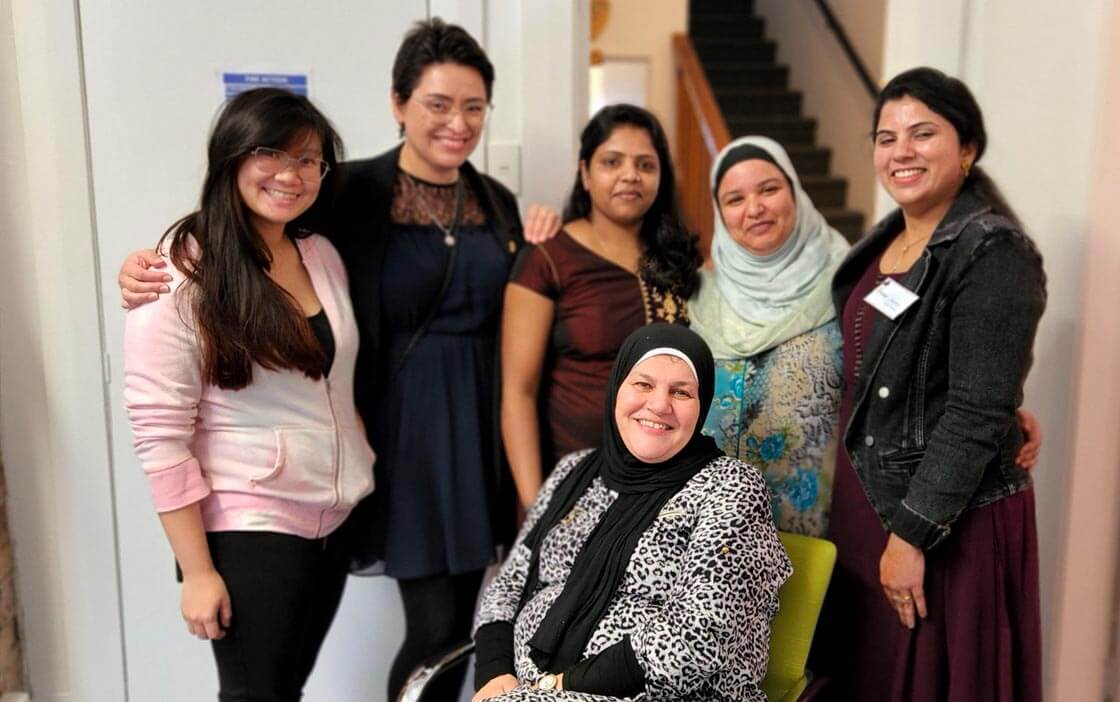
Organisation:
Shama Ethnic Women’s Trust
Programme:
Shama is a sustainable social-service organisation that provides culturally appropriate support, advocacy and programmes to ethnic women, their children and families, so they can fully integrate into New Zealand society.
LDM:
Community Waikato
Donation amount:
$5,000
Shama supports ethnic women to overcome family violence, sexual violence and other complex issues. To achieve this, Shama uses interpreters so women can fully understand their rights and responsibilities, help them navigate the legal system and grasp the impact of violence on families in Aotearoa/New Zealand.
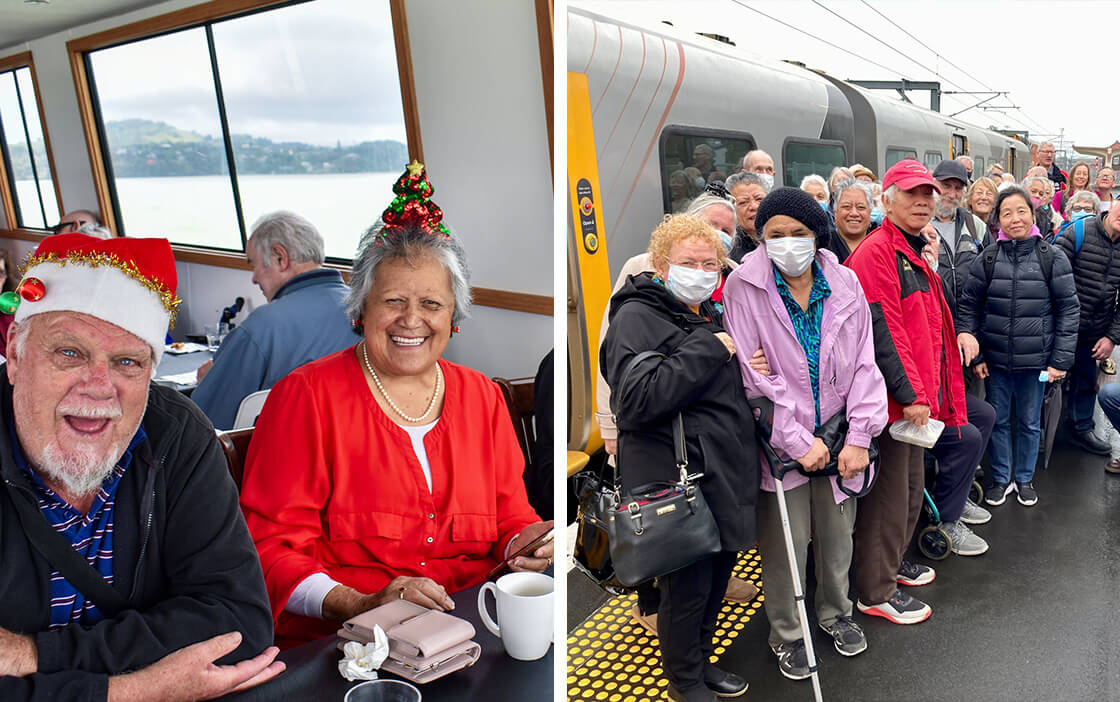
Organisation:
Western Community Centre (Hamilton)
Programme:
Supporting those in the community who may be socially isolated and lack connectedness with others. Western Community Centre brings together people who may be in similar situations, and provides elderly folk with support and access to resources.
LDM:
Community Waikato
Donation amount:
$2,000
The Western Community Centre works hard to provide opportunities to increase social connections and improve the health and wellbeing of local residents. Its 50+ group has been a great success in providing older people with shared, fun experiences they are otherwise unlikely to get because of restricted mobility and budget.

Organisation:
Family Success Matters
Programme:
Fathers for Families is a ground-breaking programme with peer support groups, which strengthens families by restoring fathers as nurturing partners within their whānau.
LDM:
Catholic Caring Foundation
Donation amount:
$15,000
Fathers for Families offers a comprehensive fathering programme — combining personal healing and behavioural management with parenting skills, long-term peer support, health and wellbeing programmes and employment pathways for high-risk dads. The purpose of the programme is to transform men into better fathers and thereby create safer families and more prosperous communities.
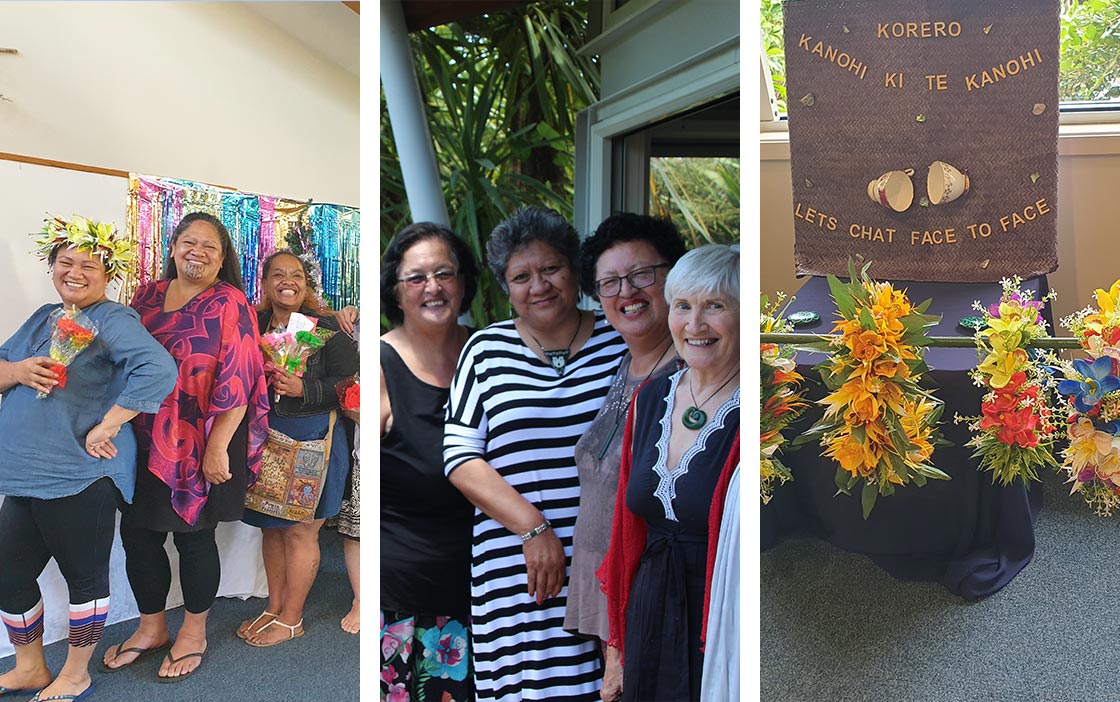
Organisation:
Te Waipuna Puawai Mercy Oasis
Programme:
Offering wraparound services to help women in the local community gain employment or establish their own small businesses.
LDM:
Catholic Caring Foundation
Donation amount:
$15,000
Te Waipuna Puawai provides free, restorative and mana-enhancing counselling services to families and individuals who are struggling because of parenting and relationship issues with children who are at risk of abuse, harm or offending. Once undergoing counselling, many women take up the opportunity to engage in other courses, such as learning how to start a business or get a job.
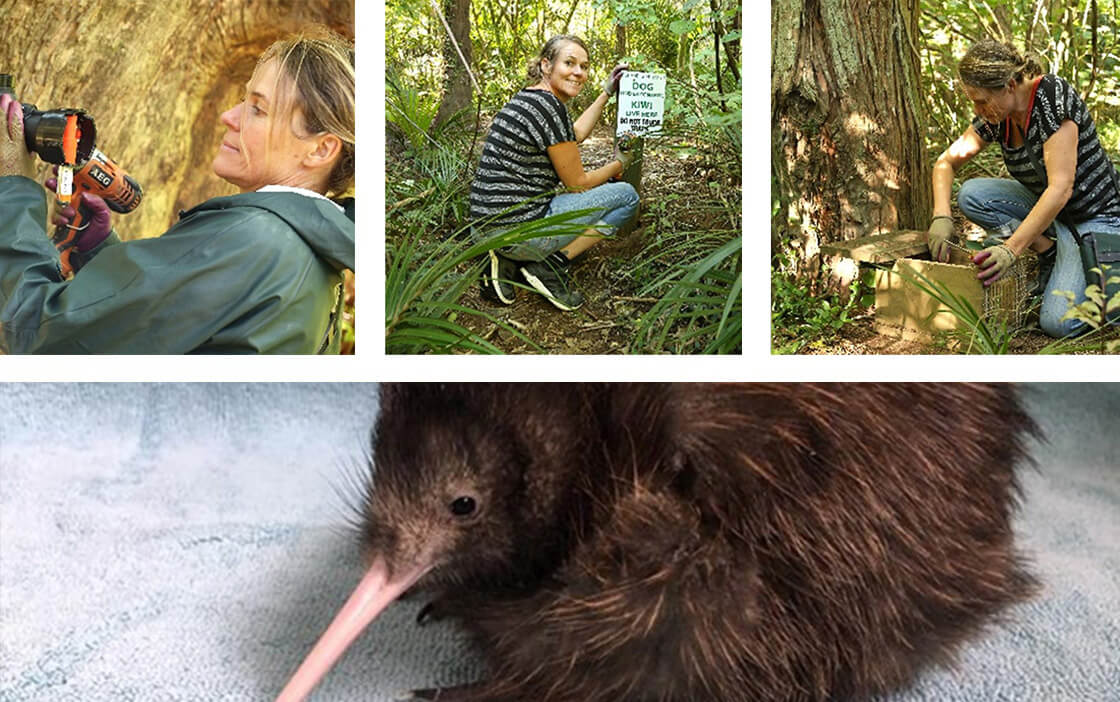
Organisation:
Thames Coast Kiwi Care
Programme:
Thames Coast Kiwi Care’s goal is to hear kiwi calling from backyards again.
LDM:
WWF NZ
Donation amount:
$15,000
The Coromandel brown kiwi population is seriously declining in places that lack predator control. The worst kiwi predators are ferrets and stoats, but uncontrolled dogs also pose a problem. Trapping for stoats and ferrets increases the survival rate for young kiwi. Just a 20% survival rate for kiwi chicks is enough to ensure the population is stable, and more than this will increase the population. The Thames Coast Kiwi Care project focuses on increasing the kiwi population and reducing predators to provide a safe habitat for kiwi.

Organisation:
Mountains to Sea Wellington Trust
Programme:
Delivering freshwater and marine education programmes to foster understanding and kaitiakitanga of the environment among schools and communities in the greater Wellington region.
LDM:
WWF NZ
Donation amount:
$15,000
The Mountains to Sea ‘Love Rimurimu’ Project aims to engage Wellington high-school students in investigating the potential of brown algae to restore marine habitats, sequester carbon and protect coasts. The algae also reduce localised ocean acidification effects, which helps tackle future food crises and supports environmentally friendly fertilisers and bioplastics.
Trusting relationships can help achieve intergenerational change
A Q&A with Cyril Howard
We kōrero with Cyril Howard, Regional Development Manager at TTF. His relational approach to the work TTF is doing in three key regions is essential for meeting the needs of communities now and long term, in order to achieve intergenerational improvement.
Read More
Tell us about your role.
My role is about building relationships with people and organisations that are doing mahi aligned with our values, whether it’s grassroots and meeting the need for right now, or looking long term to reduce intergenerational deprivation. I’m involved in seeking out changemakers and making connections with those who share our goals and are helping their communities now — and those who have great aspirations for our future.
For me, it’s all about people: it’s about coming together to build connections and trust. It’s about listening, engaging in deep kōrero, and meeting face-to-face to understand what our communities really want to achieve and who they want to help. Spending time in the community is important. If we place ourselves in high-deprivation communities and really try to understand, sometimes great opportunities can be created to achieve shared ambitions.
We are working in three key regions at the moment — Taitokerau, Tairāwhiti and Horowhenua. I feel humbled to be in a position where I get to play a part in identifying key leaders in these communities, people who really get stuff done and whom we can help make a difference now, and far into the future. It’s relational — feeling connected and sitting alongside community to gain a deep understanding and asking, how can we help?
How do you like to go about your mahi?
By really getting to know people, earning their trust and giving them my trust. One of the things I love most about TTF is that we work in a high-trust environment. I work a lot on my gut instinct — you need to trust your gut. There’s a lot to be said about unspoken values and mannerisms and observing someone’s aura when they walk into a room. Often there’s something about them that says they are full of goodness. I was taught from an early age that there is something good in everybody. TTF allows and encourages others to be who they are.
”I was also taught that when you say you’re going to do something, you absolutely do it. You can promise the world, but if you don’t deliver it means nothing.
I learned about service to community from my grandparents, and I try to bring with me all those values that I’ve been brought up with. Landing here at TTF has enabled me to be that person; I bring my true self. Those values are aligned with the communities we serve. It’s also about being honest — if someone doesn’t think something is right, they are able to say so and their view is respected.
It’s so important to manage relationships respectfully and value the longevity — that is what will help us achieve intergenerational change. When we travel to the regions we meet and hear amazing people who use beautiful inclusive words like ‘we’, ‘us’ and ‘our’. We value the gift of reciprocity, or takoha, which is not a well-recognised practice in the Pākehā world.
Raising expectations of further funding is not what it’s about. There’s a thankfulness that sits behind it, the mātauranga and tikanga from the tūpuna that make it intergenerational, and understanding that reciprocation may not even occur until the second or third generations. We can achieve intergenerational gifting only by building trusting relationships.
What do you enjoy best about what you do?
I get to meet and work with amazing people every day. There are so many awesome people who know who they are, know they want to do good, and just need a hand to get there. They are doing this all on behalf of the communities they’re serving. I love our trips around the regions, meeting awe-inspiring whānau who are doing incredible mahi. Often they introduce us to new connections along the way, with whom we might start a completely new journey.
We are in a privileged place to support community aspirations and bring resources to the table to take their hopes and dreams to fruition. If we can be that kakano, that seed that grows, then we can develop intergenerational change. It’s about clearing the pathway for future generations so that they don’t have to have the same battles that we are facing today. We are playing the long game.

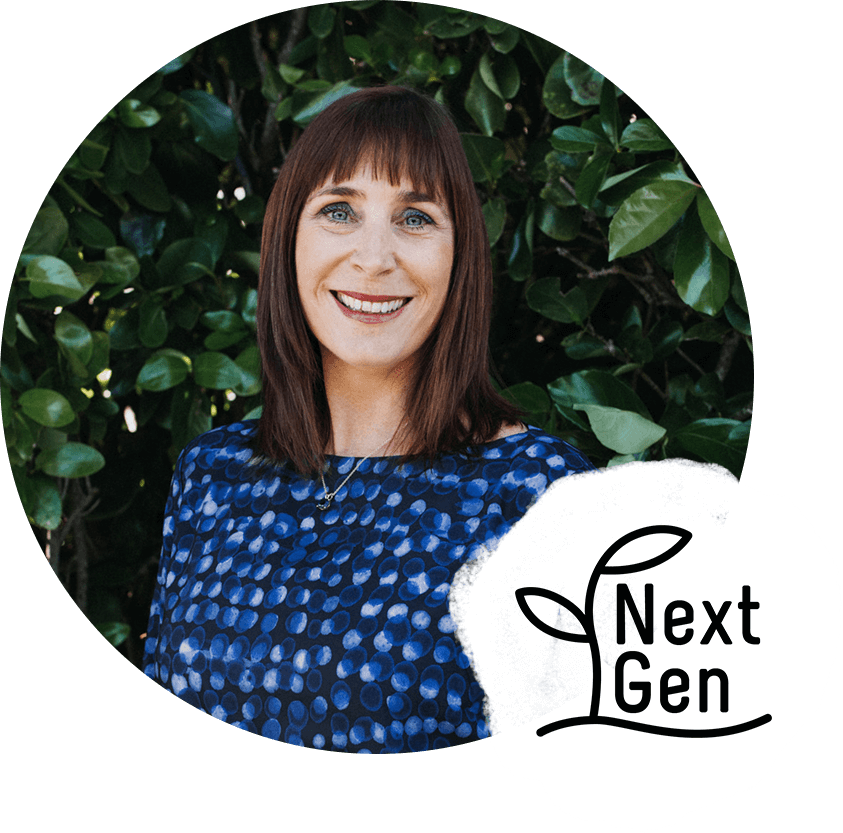
Next Gen supports rangatahi through arts and creativity
Stephen and Margaret Tindall’s five children established Next Gen in 2016 to support organisations that work in creativity and the arts, which fall outside TTF’s usual donation areas. Next Gen has grown the number of groups it supports, and proactively approaches those doing mahi that aligns with its giving strategy.
Organisations often work with marginalised and at-risk rangatahi and offer mentoring, tuition with artists and experts, and training in life skills such as mindfulness, resilience, confidence and self-esteem. Liz Tindall, who became the Manager of Next Gen in January 2022, says: “We have great high-trust relationships with the organisations we support. Recently we’ve been working with more Māori and Pasifika organisations, and have increased the number we support from 8 to 16 in the last two years.
“Arts and wellbeing go hand in hand,” she continues. “The organisations we support are so professional and have young people’s wellbeing at heart — it’s central to what they do. The skills that are learned can lead to further education and employment opportunities, but it’s really about the connection and pastoral care.”
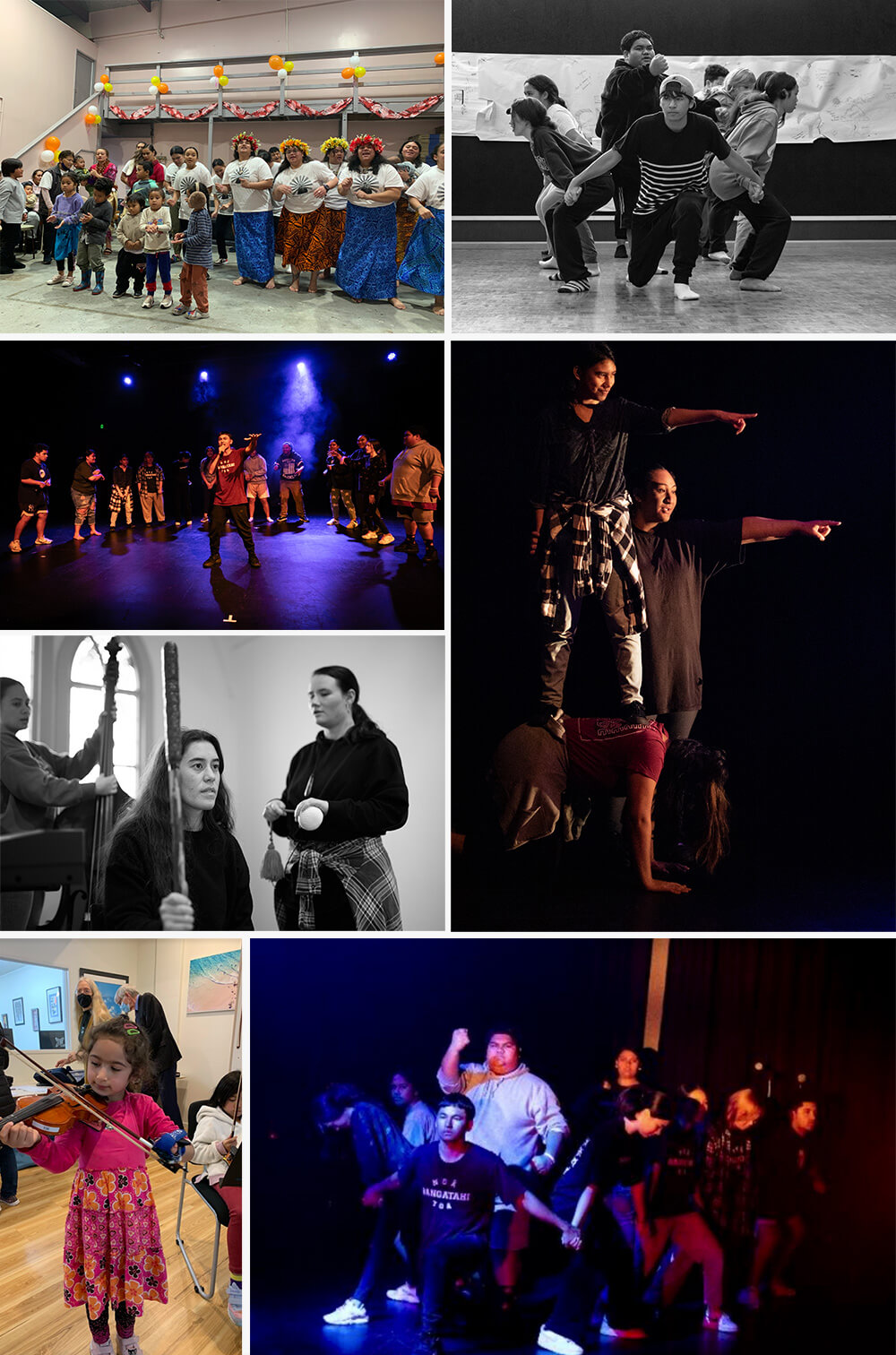
If you enjoy reading this and would like to hear more of our stories throughout the year, then opt in to receive our communications below. We send out four newsletters and our Annual Report each year so we won’t bombard your inbox.
Our Giving
In the 2021/22 year:
$10.9 million
We gave over $10 million
in donations
626 Organisations
We gave donations to 626 organisations
across New Zealand
$11 million
We committed donations of a
further $11 million
In the last 27 years:
$206 million
Our donations have totalled
over $206 million
$150 million
In addition the Foundation’s prepaid tax payments have
totalled over $150 million
Headline Summary of Key Cumulative
Results (1995–2022)
| 1. Gross Dividends Received Less Prepaid Tax (Imputation Credits) Net Dividends Received |
$484,393,465 ($150,033,641) $334,359,824 |
| 2. Donations Paid (1995–2022) | $206,160,961 |
| 3. Administration and Operating Expenses (7.4% of Donations Paid) |
$15,161,415 |
Assets
| Liquid Assets as at 31 March 2022 | $43,275,927 |
| The Warehouse Group Limited — Shares | $245,416,047 |
| Other Assets | $112,193,709 |
| Total Assets | $400,885,683 |
Total Donations Paid
For the 2021/22 financial year, The Tindall Foundation paid out donations totalling $10,961,026.

Total Donations Paid in 2021/22
by Focus Area
Family
2021/2022
Local Donation Managers:
$3,254,101
TTF Direct Donations:
$2,387,362
Total Donations:
5,641,463
Environment
2021/2022
Local Donation Managers:
$255,211
TTF Direct Donations:
$1,879,821
Total Donations:
2,135,032
Community
2021/2022
Total Donations:
1,668,710
Next Gen & Other
2021/2022
Total Donations:
1,515,821
Our People
The Tindall Foundation is a private philanthropic family foundation working throughout Aotearoa/New Zealand. We are helping to build a stronger, more equitable country for children, young people and families. We aim to work alongside communities to support them to be empowered and inclusive, and to lead positive change. Our mahi is driven by a belief that all Kiwis should have the chance to achieve their full potential and contribute to a healthy, strong society.
We support initiatives that have intergenerational impact, long-term benefits and improve equality. We prioritise Te Ao Māori knowledge and aspirations and encourage joined-up approaches that make a difference from grassroots to systems change.
Governance

Our governance team (from left to right): Rukumoana Schaafhausen (Ngāti Hauā, Waikato Tainui), Jennifer Casey, Margaret and Stephen Tindall (founders), Robbie Tindall.
Staff

We are fortunate to have a fantastic management team made up of: (front row) Kate Tindall Lum, Annette Culpan, Liz Tindall Tetro; (middle row) Jennifer Reid, Martina O’Driscoll, Ashlee McCormick; (back row) John McCarthy, Monique Baldwin, Cyril Howard.

